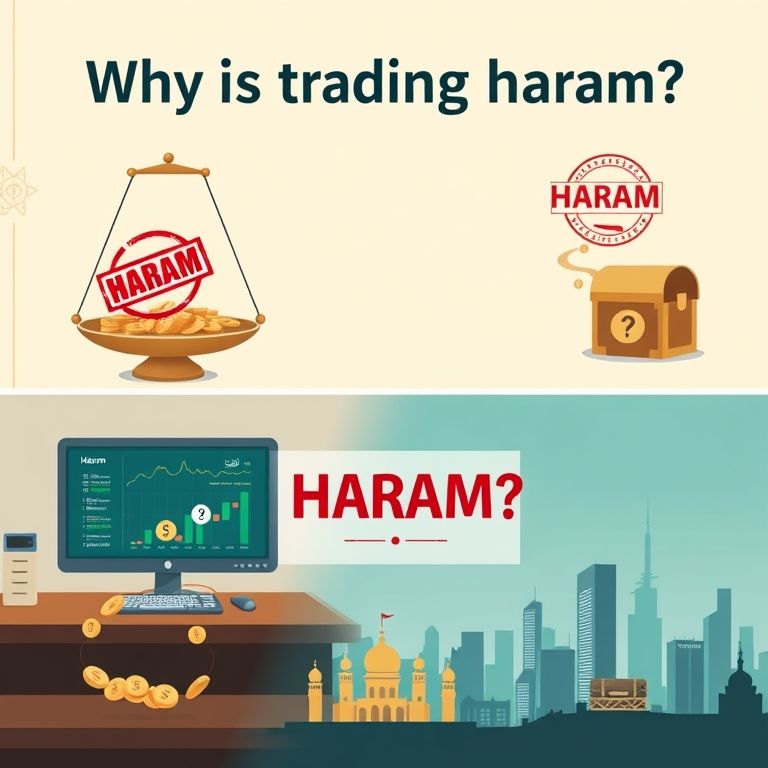why is trading haram
Why is Trading Haram? A Practical Look at Halal Finance in a Web3 World
Intro: I’m not here to preach at you, I’m here to share what I’ve learned trading as a Muslim observer of markets. Last year, over coffee, a trader friend asked me if every kind of market activity is haram. My answer wasn’t a blanket yes or no. It was a conversation about intent, risk, and the way we structure trades. The goal isn’t to shun opportunity but to align trading with values—avoiding riba (interest), excessive gharar (uncertainty), and maisir (gambling), while still riding the wave of modern markets like forex, stocks, crypto, indices, options, and commodities.

What makes trading haram
- Riba and prohibited interest: Any setup that guarantees or depends on earning interest is off-limits. That includes some rollover or swap-acceleration practices in traditional accounts. If a trade relies on a fixed interest component, it runs afoul of halal principles.
- Gharar and excessive uncertainty: When a product’s terms are unclear, or payoff is highly speculative, it’s risky business—but not always forbidden. The line is crossed when uncertainty becomes systemic, like opaque leverage or hidden fees that distort true risk.
- Maisir and gambling risk: Highly speculative bets, ultra-short-term bets with huge odds, or “win big fast” schemes resemble gambling more than investing. The goal is to trade with evidence, discipline, and defined risk—not chase luck.
Halal approaches and practical steps
- Screen for halal assets: Favor asset-backed or equity instruments where ownership is clear (stocks with halal-compliant screens, commodities, certain indices). Seek platforms that offer no-swap or Islamic accounts where possible.
- Align leverage and fees with care: Use conservative leverage. Even if a broker offers higher ratios, halal trading tends to favor risk-managed setups: lower leverage, defined stop losses, disciplined position sizing, and clear cost structures.
- Use informed analysis, not guesswork: Combine fundamental signals (company health, macro backdrop) with technical analysis. The goal is to trade what you understand, not chase noise.
Asset classes and halal considerations
- Forex: Can be halal if you trade the underlying asset without relying on interest-based rollovers. Some brokers offer Islamic accounts that remove swap fees.
- Stocks and indices: Generally safer halal options if you avoid speculative derivatives and pay attention to screened screens for halal compliance.
- Crypto: Debated in some circles, but many see it as permissible when you avoid precarious tokens, scams, or interest-bearing staking that resembles riba. Ongoing discussion with scholars means many traders opt for well-audited, real-asset-backed crypto projects and strict risk controls.
- Options and commodities: Options require careful structure to avoid gambling-like risk. If used for hedging and with clear risk limits, they can be part of a halal-rounded plan; always beware leverage and mispricing.
- Diversification: A halal plan often embraces diversified, risk-aware exposure across asset classes rather than chasing a single high-risk bet.
Leveraging wisely and reliability tips
- Start small, validate: Test strategies in a simulated or low-risk environment. Build a track record before scaling.
- Clear risk controls: Use stop losses, predefined risk-per-trade (e.g., 1-2%), and a hard daily loss limit.
- Ethical leverage: If you must use leverage, keep it modest and tied to a solid plan. Don’t let greed push you beyond your edge.
- Accountability and record-keeping: Track decisions, reasons for entries/exits, and the halal rationale. This helps you audit your own practice.
Web3, DeFi, and the path forward
- Decentralized finance brings transparency and programmable rules via smart contracts, but it also raises security and regulatory challenges. Rug pulls, oracle failures, and liquidity shocks can derail even well-conceived strategies.
- Decentralization is evolving. Smarter contract standards, better auditing, and cross-chain risk controls improve safety, but users must stay informed and cautious.
- AI-driven trading and smart contracts: Expect smarter risk models, automated compliance checks, and faster reaction to market shifts. The promise is precision with responsibility.
Slogans and mindset for halal, high-tech trading
- Trade with conscience, grow with clarity.
- Halal gains, smart tech, ethical risk management.
- Conscience-first trading in a fast-moving market.
Closing thought
The future of trading in a halal frame sits at the intersection of values and velocity: sound asset selection, disciplined risk, transparent platforms, and evolving tech. We won’t erase risk, but we can reduce it by aligning methods with principles, embracing smart tools, and staying curious about how fair, tech-enabled markets can work for everyone. If you’re considering a step into this space, start with education, choose compliant routes, and build a resilient plan—one trade at a time.
YOU MAY ALSO LIKE